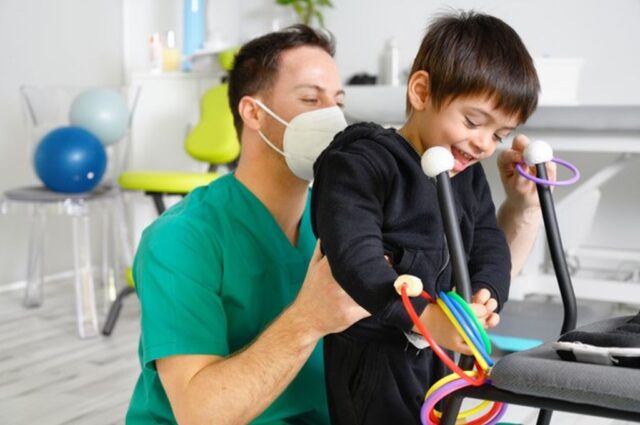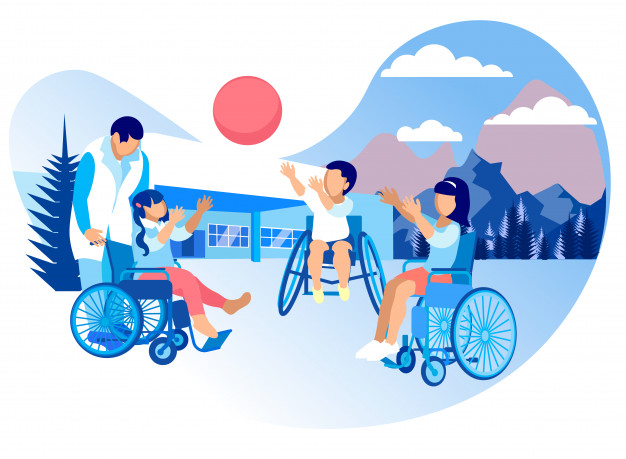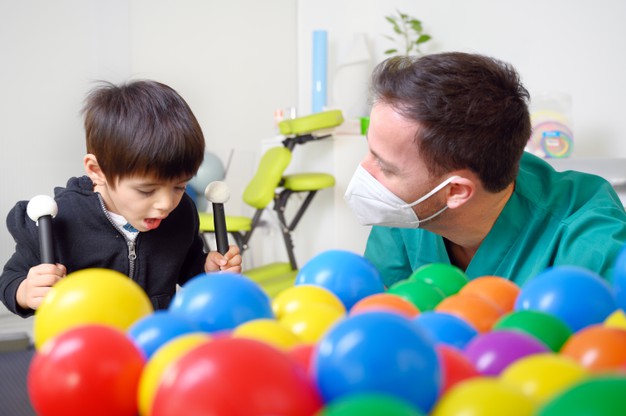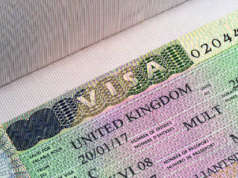
Did you know that brain injury in a developing fetus or during delivery is the leading cause of cerebral palsy? It is a term that refers to a range of neurological illnesses and disabilities that all have the potential to impair movement, balance, and posture. This news might be daunting for parents who have recently learned that their kid has cerebral palsy.
While it’s natural to be terrified at first, it’s critical to go past this stage as quickly as possible. Your attitude about this disease will significantly impact how your child grows and views their potential and self-worth. Continue reading to see how you may provide your child with the most incredible life possible.
1. Early Acceptance

It’s crucial to accept cerebral palsy early on, especially if you’re a parent or sibling of someone with the condition. Deciding and accepting of your condition is essential for successfully treating a loved one with cerebral palsy; the sooner you achieve approval, the better for your loved one.
Children with cerebral palsy require more care than children without the disorder, particularly during their first few years of life. Early involvement in the care of your cerebral palsy child will make later care much more effortless. To relieve family stress, older siblings can assist with the care of your cerebral palsy child alongside you.
2. Cerebral Palsy Education for the Whole Family
This first stage appears to be self-evident. However, you’d be shocked how often simply one parent or family member is conducting most of the cerebral palsy research. The entire family should be aware of what cerebral palsy is and how it impacts a kid. Family members may find it difficult to relate to someone who has CP.
For example, if you have a boy, a father desires to teach his son how to play baseball or football. A father’s hopes of playing catch may be slightly altered after doing some study on CP, but they will not be broken. Any concerns a parent or caregiver has regarding their child’s future can be alleviated by research. The task of caring for your child is not placed solely on one individual when the entire family is participating.
3. Adaptability

Mobility issues, while they vary significantly from person to person, are often a life-long worry. It’s critical to begin thinking about mobility issues and how you’ll help your child move as freely, pleasantly, and simply as possible as soon as feasible.
It is recommended that the youngster see an orthopaedic professional and undergo physical therapy, and you can learn more about the details of orthopaedic treatments and recovery here. These services will assess mobility and strive to enhance general strength and joint movement.
Mobility difficulties will become more evident as your child grows. This will enable you and your child’s healthcare team to devise ways to reduce the limits imposed by reduced mobility. This could include ordering a wheelchair or other assistance equipment online from places like www.rehagirona.com to aid in transportation, hygiene, and dining.
4. You Should Take Your Time And Encourage Your Child To Be The Best Version Of Them
It’s critical to keep one thing in mind: your child has a life to live. If you give your child the freedom to do whatever they want, they will. If you have other children, they will improve if they see what their sibling is doing. Only if you treat your child with CP the same way you treat your other children or any child for that matter will this pattern of encouragement emerge.
5. Prescription Drugs

Children with Cerebral Palsy are given drugs such as anticholinergics or muscle relaxers. To relieve spasticity and anti-inflammatories to help with pain management. Chorea, characterized by jerky, involuntary, irregular, and uncontrollable movements, and dystonia, characterized by prolonged and involuntary contractions, are two types of Cerebral Palsy for which anticholinergics are recommended.
6. Take Therapies into Account
Children and babies with cerebral palsy get various therapy, including physical, occupational, feeding, aqua, speech, bowel program, music, and behavioural. They can help with physical, mental, social, and educational issues. Cerebral palsy therapy, if started early, can minimize impairment and the chance of developing other related disorders.
7. Consider Giving Your Child Personal Care Aide

Personal care aides can help people with Cerebral Palsy live more independently than they might otherwise. The breadth of services available varies from person to person, depending on the severity of the disability and the duties that individuals and caregivers can perform. Personal, medical, employment, linguistic, cognitive, and emotional demands all influence the services provided. Contact Coast 2 Coast Toronto if you’re looking for a top-notch training facility for your CPR and first aid certification.
8. Take Your Child To Gatherings Of Friends And Family, As Well As Community Events
Extended family gatherings may be the most effective way for people with cerebral palsy to form bonds with a supportive network. Extended family can also aid by sharing the strain of care and relieving the primary caregivers (usually parents and siblings of a cerebral palsy person).
In addition, your child with cerebral palsy may find comfort in their neighbourhood or faith-based community. Acceptance as a member of a larger group might provide a familiar change of scenery for someone with cerebral palsy.
9. Take Your Time And Listen Carefully, Especially If They Have Difficulty Communicating

If your adolescent has been diagnosed, communication may be more challenging for him or her, making it more difficult for you to grasp what he or she is saying. If you don’t understand, the best thing you can do is ask your child to repeat what they said, rather than trying to speak it for them or pretending you didn’t hear your adolescent.
If you give your youngster the opportunity, he or she will almost certainly repeat themselves. How many times has it angered you when someone finishes your sentences for you? Treat people with CP with the same respect and allow them to speak for themselves.
Caring for someone with cerebral palsy is a difficult task. You should not be scared to ask questions since doctors, specialists, and CP support organizations. Further, you will be able to provide excellent life for your child diagnosed with Cerebral Palsy if you follow the above advice.









